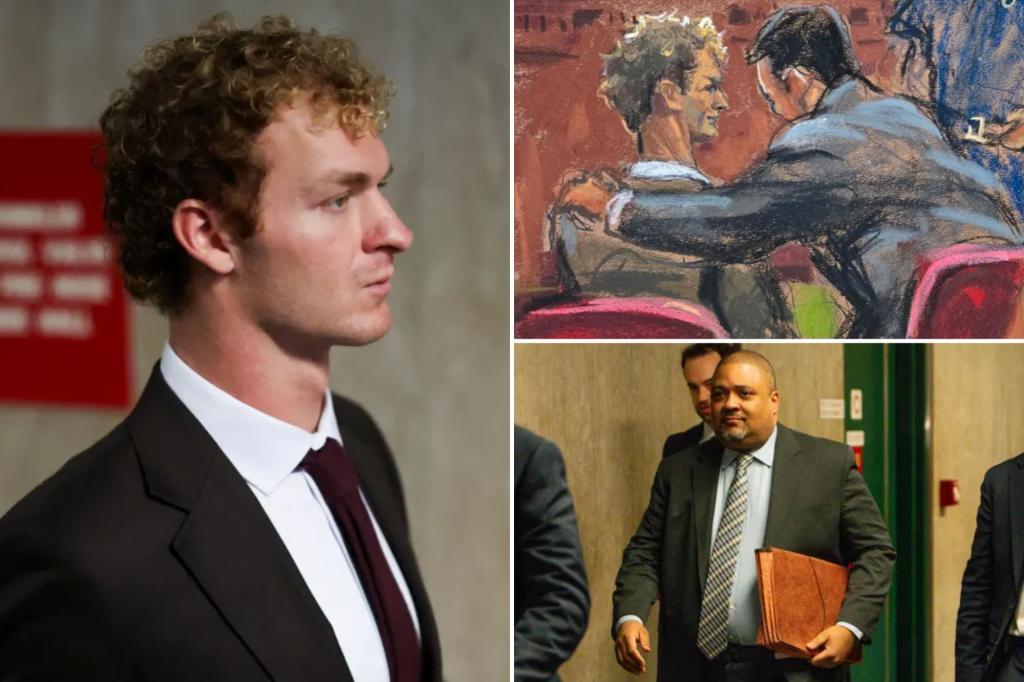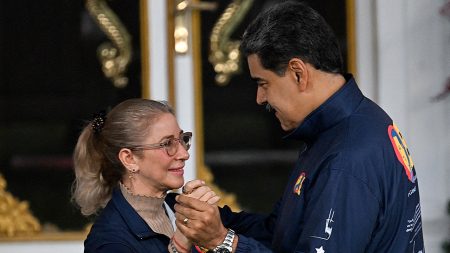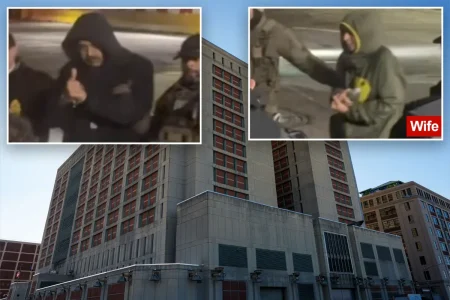The acquittal of Daniel Penny in the chokehold death of Jordan Neely has ignited a firestorm of criticism directed at Manhattan District Attorney Alvin Bragg, with renewed and amplified calls for his removal from office. Critics, ranging from local council members to state assemblymen and US representatives, accuse Bragg of pursuing politically motivated prosecutions while neglecting public safety and allowing actual criminals to roam free. The Penny case, they argue, is emblematic of Bragg’s skewed priorities and a broader pattern of prioritizing political agendas over the pursuit of justice and the safety of New Yorkers.
The core of the criticism revolves around the perception that Bragg targeted Penny, a perceived hero who intervened in a potentially dangerous situation, while simultaneously exhibiting leniency towards violent criminals. Council members condemned Bragg’s “contempt for reality and common sense,” accusing him of prioritizing the prosecution of individuals like Penny while allowing genuine threats to public safety to go unaddressed. This perceived double standard has fueled outrage and amplified calls for Bragg’s removal, with critics asserting that his continued tenure poses a direct threat to the safety and well-being of New York City residents.
Assemblyman Michael Tannousis echoed these sentiments, accusing Bragg of wasting taxpayer dollars on a frivolous prosecution driven by a “skewed agenda.” He argued that Penny was unjustly accused and subjected to public slander, all in service of Bragg’s personal political objectives. The acquittal, Tannousis contends, vindicates Penny and underscores the DA’s misplaced priorities. He further asserted that Bragg’s focus on politically charged cases detracts from his core responsibility of protecting New Yorkers, contributing to the city’s escalating crime problem.
Councilman Joe Borelli’s condemnation was equally sharp, stating that the case exposed Bragg’s “perverse sense of justice” and calling for his immediate resignation. This sentiment reflects the broader frustration with Bragg’s approach to law enforcement, with critics arguing that his actions undermine public trust in the justice system and embolden criminals. The Penny case, in their view, is not an isolated incident but rather a symptom of a larger systemic issue within the DA’s office.
Bragg’s critics point to a pattern of controversial prosecutions, including the charges against former President Donald Trump and bodega worker Jose Alba, as further evidence of his flawed approach. The Alba case, in particular, draws parallels with the Penny situation, with both involving individuals who used force in response to perceived threats. The eventual dismissal of charges against Alba, after public outcry and legal challenges, reinforced the perception that Bragg is too quick to prosecute individuals acting in self-defense or intervening in dangerous situations.
US Representative Michael Lawler summarized the prevailing criticism, accusing Bragg of failing in his fundamental responsibilities to enforce the law and keep New Yorkers safe. He explicitly labeled the prosecutions of Trump, Penny, and Alba as “political prosecutions,” driven by personal agendas rather than a genuine pursuit of justice. Lawler joined the growing chorus calling for Bragg’s immediate removal, arguing that his continued tenure poses an unacceptable risk to the city’s security and the integrity of the legal system. Bragg’s office, in a post-verdict statement, maintained that they “followed the facts and the evidence in the case” and accepted the jury’s verdict. This response, however, has done little to quell the mounting criticism and calls for his removal. The Penny case has become a rallying point for those who believe that Bragg’s policies are endangering New Yorkers and undermining the rule of law.








